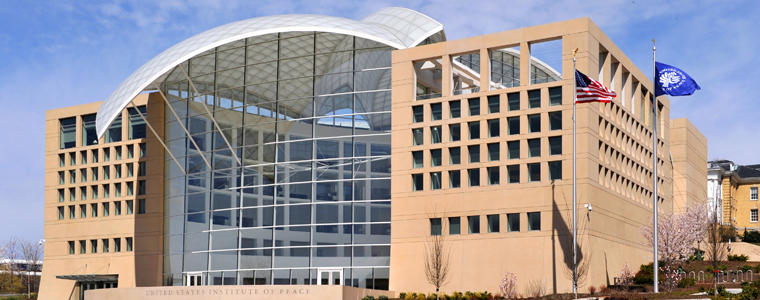USIP in 2011: Year in Review
USIP experts look back at 2011 and ahead to 2012 on the Two Sudans, Afghanistan, Pakistan, the Arab/Israeli conflict, gender issues, and more.

USIP analysts and practitioners have been studying the trends and working on-the-ground to help the U.S. prevent, manage and resolve these conflicts. Blending theory and practice, USIP is making a difference around the world.
USIP experts look back at 2011 and ahead to 2012 on the Two Sudans, Afghanistan, Pakistan, the Arab/Israeli conflict, gender issues, and more.
 Year in Review: The Two Sudans
Year in Review: The Two Sudans
Director of USIP's Two Sudans program, Jon Temin, reflects on the birth of the world's newest nation, South Sudan, and looks ahead to 2012 and USIP's continued impact in the region.
.jpg) Media and Peacebuilding: Trends in 2011 and Looking Ahead to 2012
Media and Peacebuilding: Trends in 2011 and Looking Ahead to 2012
Sheldon Himelfarb, the director of USIP’s Center of Innovation: Media, Conflict, and Peacebuilding and the Center of Innovation: Science, Technology and Peacebuilding, discusses trends of 2011 and looks ahead to what’s in store for the new year regarding conflict and new media technology.
 Year in Review: Palestine/Israel Outlook
Year in Review: Palestine/Israel Outlook
Attempts to revive the stalled peace process bore no fruit in 2011. USIP's Lucy Kurtzer-Ellenbogen recaps 2011 and looks ahead to challenges in 2012.
Year in Review: Afghanistan
USIP’s Afghanistan country director, Shahmahmood Miakhel, discusses the key events and issues of 2011, and what we should be looking out for in 2012, such as possible peace talks with the Taliban.
 Highlights from 2011: USIP's Gender and Peacebuilding Center
Highlights from 2011: USIP's Gender and Peacebuilding Center
Kathleen Kuehnast discusses USIP's focus on gender in 2011 and looks ahead at the gender projects USIP will work on in 2012.




